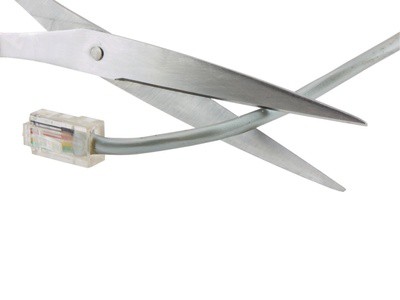Landline customers in swing states have been under assault since last weekend from waves of robocalls, some containing false and misleading voting information, that have come in at rates of 20, 30, or even more every hour.
“Robocalls” are the annoying recorded messages mass-blasted to landline customers from candidates, their wives, political allies, and astroturf groups encouraging support for particular candidates or demonizing their opponents. While most landline customers receive a handful of “get out the vote” reminders during Election Day, voters in hotly-contested swing states are under siege with dozens upon dozens of recorded political messages. Now some are unplugging their phones until the polls close.
In Wisconsin, one woman said she received “calls” from President Obama, Governor Romney, and 63 others before she finally pulled the plug on her phone.
[flv width=”576″ height=”344″]http://www.phillipdampier.com/video/WXMI Grand Rapids Assault of the Robocall 11-5-12.flv[/flv]
Norma Escribano-Smith in Grandville got 65 robocalls on her phone before she finally became so exasperated, she unplugged it. WXMI in Grand Rapids reports on life in a swing state. (3 minutes)
Some groups blast out calls opposing specific ballot measures — marriage equality and tax measures are two hot issues this season. Others are more clandestine about their true identity, launched by dirty tricks firms that are masters in the dark art of the misleading robocall.
In Florida, registered voters in heavily Democratic areas report getting calls identified by Caller ID as the local Obama campaign office. The recorded messages that follow inaccurately tell voters the election has “been extended” and they can “vote for Obama tomorrow” by dropping off their ballots at a local polling place. The local Obama office is not the source of the calls, however. Someone is faking (better known as “spoofing”) the Caller ID information.
In Tucson, Ariz., local Republicans are getting calls suggesting their party supports a state proposition on the ballot the GOP actually opposes. Over in Phoenix, the campaign of Republican candidate Jeff Flake was caught making misleading and inaccurate robocalls misdirecting Democratic supporters of Richard Carmona to the wrong polling locations, often miles away. Those calls are now being looked at by the Department of Justice in Washington.
Democrat Mary Crecco of Scottsdale said she “just freaked out” when she got the Flake robocall. “It was totally wrong, totally wrong, and I feel like it was done purposely,” she told a Phoenix TV station.
[flv width=”640″ height=”380″]http://www.phillipdampier.com/video/KPNX Phoenix Democrats fuming over Flake robocalls 11-5-12.flv[/flv]
KPNX’s ‘Watch Dogs’ launched a special investigation into misleading robocalls from the campaign of Jeff Flake misdirecting Phoenix-area Democrats to the wrong polling locations. (3 minutes)
So who avoids robocalls? Cell phone customers. Under FCC rules, robocalls to cell phones are not permitted without permission from the person being called. In Pennsylvania, one Verizon Wireless store manager reported brisk sales from customers in the last few weeks driven away from their landline by the avalanche of political messages and other telemarketers.
Some states have successfully controlled the onslaught with laws that do not allow recorded robocalls unless first introduced by a live operator asking for permission to play them. That dramatically raises the cost of robocalling, leading many groups back to traditional mailers or broadcast advertising, both only slightly less annoying.
“Four out of five calls this morning were political calls,” John Fox, Pottsville, told a Pennsylania newspaper Monday at Fairlane Village mall. “I told my wife not to answer the phone anymore.”
[flv width=”640″ height=”380″]http://www.phillipdampier.com/video/WSAW Wausau Voters Annoyed by Political Robocalls 11-5-12.mp4[/flv]
WSAW in Wausau has started giving out tips to call-weary Wisconsin voters who are fed up with a constant assault of robocalls on their home phones. (2 minutes)


 Subscribe
Subscribe










